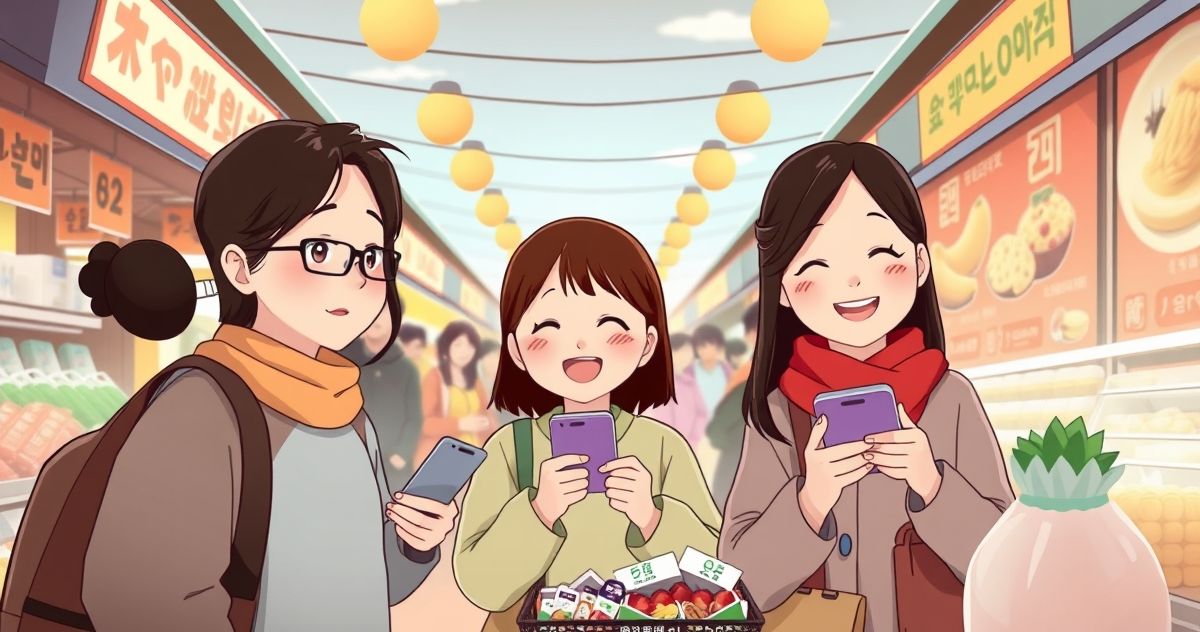
Background of the Economic Recovery Program
On July 21, 2025, South Korea inaugurated a substantial consumer coupon program designed to bolster economic recovery following the pandemic's severe impact. With applications soaring to 6.98 million on its inaugural day, the government has signaled both an urgent response to economic challenges and a commitment to invigorating domestic consumption.
The recent consumer coupon initiative forms a vital component of South Korea's broader economic recovery strategy, launched in light of pandemic-related hardships. As the nation emerged from months of lockdowns and restrictions, consumer spending plummeted, adversely affecting small businesses and sectors reliant on in-person transactions. The government recognized an urgent need to stimulate demand, leading to the formulation of this sweeping financial relief program aimed at directly benefiting consumers while boosting local businesses.
The program allocates 1.27 trillion won (approximately $1 billion) worth of vouchers to eligible citizens, a decisive move aligned with the government's objective of fostering a quicker economic recovery trajectory. South Korea's economic planners anticipate that by putting cash directly into the hands of consumers, spending will increase, thus propelling GDP growth and revitalizing sectors that have suffered the most during the pandemic.
First Day Statistics and Analysis
The launch day of the coupon program witnessed an impressive turnout, with 6.98 million applications processed—representing a remarkable 14% application rate of the eligible population. The overwhelming initial response indicates a strong consumer appetite for government support and financial relief.
Economic analysts noted that the speed and volume of applications reflect consumer confidence in the support measures, suggesting that the financial aid could potentially translate into substantial changes in spending behavior. The government's decision to distribute vouchers, which can be used at a wide range of local businesses, positions it as an immediate economic stimulus, targeting areas most in need of recovery.
Impact on Small Businesses and Economy
The repercussions of the consumer coupon program are anticipated to be profound, particularly for small businesses which have borne the brunt of economic disruption. The vouchers can be redeemed at various small and medium enterprises (SMEs), which provide a diversified array of goods and services across the country.
Local business owners have expressed optimism, anticipating a surge in foot traffic and sales as consumers reclaim their purchasing power. Regionally, the effects may also stimulate job creation as businesses look to reinstate positions lost during the pandemic's worst phases. Experts predict that this influx of cash flow into local economies could yield a ripple effect, generating sustained economic activity beyond the initial distribution period.
Comparison with Previous Policies
This initiative mirrors past programs, such as the 2020 and 2021 relief measures that were introduced to combat the negative impacts of COVID-19. However, the magnitude and breadth of the current program are more extensive. In previous instances, the focus was primarily on direct cash transfers or targeted aids for specific industries, whereas the current model is expansive, aiming for a widespread impact across various sectors.
The proactive shift illustrates a learned approach from earlier policy implementations, where rapid injections of consumer spending were found to help stabilize economic downturns. In contrasting the mechanisms, the current environment suggests a pivot towards more direct consumer support while addressing the specific needs of SMEs.
Expert Opinions and Market Reactions
The response from economic experts has been largely positive. Dr. Han Ji-soo, an economist at the Seoul National University, remarked, "This coupon initiative is both a bold and necessary step toward stimulating the economy. By directly involving consumers, the government can ensure that funds are allocated where they are needed most."
Market reactions have also been upbeat, with South Korean stocks showing gains following the program's announcement. Retail and service sectors, in particular, have seen positive upticks, with investors optimistic about increased consumer spending translating into better quarterly performances for businesses.
Global Context for International Readers
In a global context, such initiatives are becoming increasingly common as countries strive to rejuvenate their economies post-pandemic. Nations like the United States and various European countries have also rolled out stimulus programs targeting consumer spending as part of their recovery plans. However, South Korea's focus on boosting small businesses through direct consumer engagement stands out as a strategic approach that could offer insights for other economies navigating similar challenges.
Conclusion
As South Korea embarks on this ambitious consumer coupon program, the initial response underscores a collective eagerness to recover from economic stagnation. While the coming months will reveal the full impact of these measures, the strong start reflects a hopeful outlook for the nation's economy and its small businesses, navigating the tumultuous waters of recovery. Looking forward, the effectiveness of this initiative may serve as a template for other nations grappling with similar post-pandemic economic hurdles.
Original Korean article: https://trendy.storydot.kr/economy/consumer-coupon-economic-recovery-2025


0 Comments